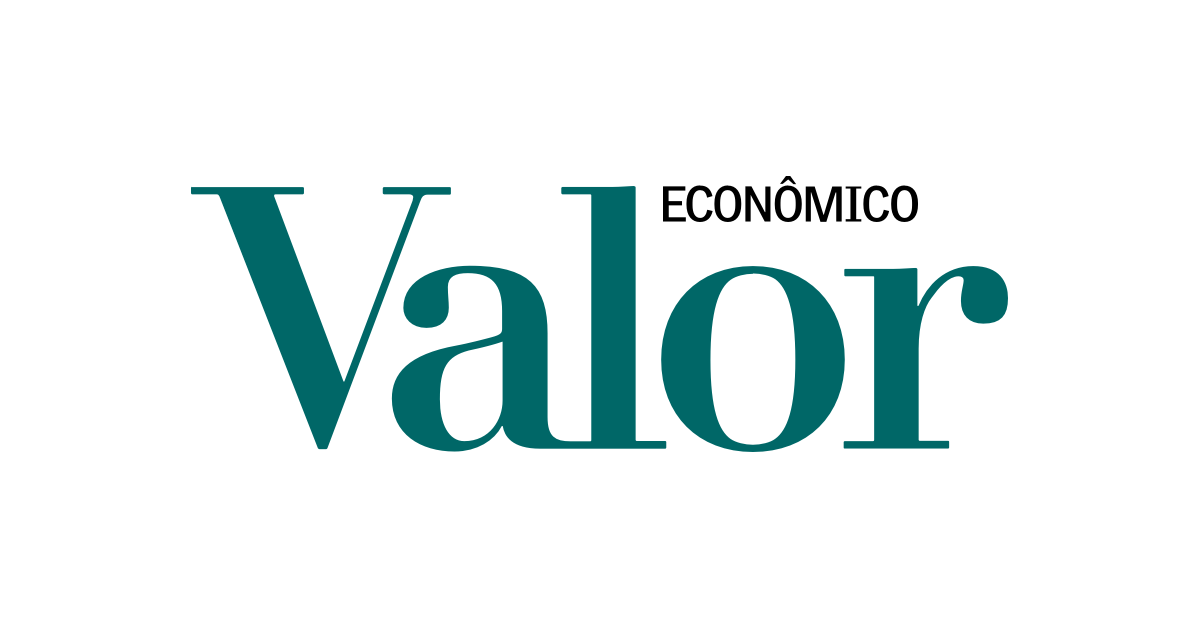Deleted member 7573
Banned
-
- Joined
- May 17, 2018
- Posts
- 7,098
One of the things that make me want to end it all and drag some normies to hell with me is the bullying I'm suffering in my workplace, I'm a joke and I am humiliated there almost everyday, some people even said that I should not be contracted as a full employee because of my appearance, yes that's right, I'm not even a full employee, I'm a intern and some of them want to me to never go back there because I'm ugly and before a cuck use the excuse saying that it's because I don't work hard enough, no you fucking faggot, I work my ass out there everyday, some praised my work, but a lot of them want me gone just because I'm ugly, and yes I heard them saying, oh but it's probably because I use the word faggot on the internet, and sometimes I call women "foid" here as well.
So I'm going to translate some articles that I found in my language that is drowning in blackpills about this
The first one

 www.televendasecobranca.com.br
www.televendasecobranca.com.br
Ugly people suffer more bullying at work
Everyone knows that school can be a cruel environment where students considered attractive are "popular", and the less attractive end up intimidated or suffer bullyng.
It was hoped (oh, impossible dream) that this kind of petty behavior would disappear into adulthood, but new research showed that no; co-workers can be as immature as classmates.
The study by the University of Notre Dame and Michigan State University (both in the US) is the first to link attractiveness to bullying in the workplace. The researchers concluded that physical attractiveness affects the same way the personality in the way a person is treated at work. They interviewed 114 workers, asking them how often their colleagues treated him cruelly, saying offensive things, being thick or making fun of them. Through digital photos, the "attractiveness" of these workers was then judged by people who did not know them.
"We have found that less attractive people are more likely to be treated rudely, rudely and even cruelly by their co-workers. And not only do we, as a society, perceive attractive and unattractive co-workers differently, as we act upon this perception in ways that can be painful, "said Timothy Judge, one of the authors of the study.
Research has already found that beauty can greatly help a person in the job market, whether to receive higher salaries, better performance appraisals, or career success as a whole. Attractive people are more self-confident, have greater self-esteem and are perceived as more intelligent and moral. The survey also indicates that seeing attractive people puts us in a better state of mind.
"Given that physical attraction is not a professional qualification for most jobs, our new findings are problematic for society," says Judge. "Worse yet, research shows that we are more influenced by attractiveness than we are willing to admit."
This is a problem with no easy solution, especially given the increasingly visual nature of communication. "Consciousness [of the problem] is certainly an important step," says the researcher. "If we recognize our prejudices and are more open and honest about their ubiquity, we can better counter this influence."
The second one

 www.valor.com.br
www.valor.com.br
The ugly ones are disappearing from the companies
A few days ago, I gave a talk to new hires from one of the four largest accounting firms in the world. As I watched the audience, I noticed something strange. Among the 80 faces that faced me, there was not an ugly one. Nobody with acne skin. No one with unpleasant asymmetrical features. All faces were attractive. No one with unpleasant asymmetrical features. All faces were attractive.
It was not Vogue or Abercrombie & Fitch. Those people had been hired to audit company accounts, a task that required an unusual enthusiasm for GAAP [Generally Accepted Accounting Principles] - not salient cheekbones. Even so, that room full of counters had a minimal standard of appearance that is not found in a large part of the population.
This, however, is not an isolated case. When I think of my children's friends who have got jobs in accounting firms, consultancies, banks, and law firms, I realize that everyone has an above-average beauty pattern. Even on the radio, known as the ugly natural refuge, I can not remember any. I'm in the middle of a production process of a radio show and all the producers are beautiful. Even sound engineers - those who handle buttons - look good.
We not only banned the ugly from most competitive jobs, but also banned the word. No one calls an ugly person, just does not hire her. I tried to take an online test in which you need to assess whether people are honest, dominant and competent based on subtle differences in their features. I have discovered that I am as prejudiced against ugly as anyone.
Recruiters and managers take that into account, and good-looking people even earn 10 percent more than ugly ones, while CEOs with authoritative physiognomy command companies with the highest profits. Other studies say being ugly can sometimes be an advantage - if you're trying to steal a bank, you better be a bit scary. It can also help you to be hired at the expense of someone handsome, but only when the recruiter sees you as a potential competitor to him. But none of that is encouraging.
These surveys do not prove that discrimination against the ugly is getting worse, but my eyes say yes. This may be occurring in part because my eyes are 56 years old and for them, anyone in their 20s looks beautiful. Still, I've been looking at old photos of my trainee class at JP Morgan in 1982, and though we looked ridiculously young, our looks were not uniformly attractive. There were a few beauties, but most of them looked ordinary and a few were pretty ugly.
Another possible reason for accountants to be more personable is that the whole world is getting more beautiful as it gets richer and more obsessed with appearance. Even so, if you start observing the subway users in the morning, you will quickly see that this is not true. There are a lot of ugly people. But where do they work? Not in the City of London. Not in the Big Four.
In a way, it is strange that we are discriminating more about appearance in the age of the internet, where we send text messages to people instead of meeting them. Even so, in other ways the internet is making things worse. Right now I received details of a person I'm interviewing for something and did what I always do - I looked for it on Google Images and I saw their eyes wide and separated and the jaw well delineated. My prejudices appeared, and I still have not found the subject.
To counter this sort of thing, Unilever and Microsoft are engaged in an experiment in Mexico, where they interview people standing three minutes behind a screen, so that first impressions are not influenced by the faces of the candidates. Bet that over time this sort of thing will spread. Meanwhile, the number of ugly people that a company hires says a lot about it. If you hire only the handsome, it's not only being despicable, it's letting a bunch of potential talent pass - which means inferior performance ahead.
So I'm going to translate some articles that I found in my language that is drowning in blackpills about this
The first one

Pessoas feias sofrem mais bullying no trabalho | Blog Televendas & Cobrança
Pessoas feias sofrem mais bullying no trabalho Todo mundo sabe que a escola pode ser um ambiente cruel, onde os alunos considerados atraentes são “populares”, e os menos atraentes acabam intimidados ou sofrem bullyng.
Ugly people suffer more bullying at work
Everyone knows that school can be a cruel environment where students considered attractive are "popular", and the less attractive end up intimidated or suffer bullyng.
It was hoped (oh, impossible dream) that this kind of petty behavior would disappear into adulthood, but new research showed that no; co-workers can be as immature as classmates.
The study by the University of Notre Dame and Michigan State University (both in the US) is the first to link attractiveness to bullying in the workplace. The researchers concluded that physical attractiveness affects the same way the personality in the way a person is treated at work. They interviewed 114 workers, asking them how often their colleagues treated him cruelly, saying offensive things, being thick or making fun of them. Through digital photos, the "attractiveness" of these workers was then judged by people who did not know them.
"We have found that less attractive people are more likely to be treated rudely, rudely and even cruelly by their co-workers. And not only do we, as a society, perceive attractive and unattractive co-workers differently, as we act upon this perception in ways that can be painful, "said Timothy Judge, one of the authors of the study.
Research has already found that beauty can greatly help a person in the job market, whether to receive higher salaries, better performance appraisals, or career success as a whole. Attractive people are more self-confident, have greater self-esteem and are perceived as more intelligent and moral. The survey also indicates that seeing attractive people puts us in a better state of mind.
"Given that physical attraction is not a professional qualification for most jobs, our new findings are problematic for society," says Judge. "Worse yet, research shows that we are more influenced by attractiveness than we are willing to admit."
This is a problem with no easy solution, especially given the increasingly visual nature of communication. "Consciousness [of the problem] is certainly an important step," says the researcher. "If we recognize our prejudices and are more open and honest about their ubiquity, we can better counter this influence."
The second one

Os feios estão sumindo das empresas
The ugly ones are disappearing from the companies
A few days ago, I gave a talk to new hires from one of the four largest accounting firms in the world. As I watched the audience, I noticed something strange. Among the 80 faces that faced me, there was not an ugly one. Nobody with acne skin. No one with unpleasant asymmetrical features. All faces were attractive. No one with unpleasant asymmetrical features. All faces were attractive.
It was not Vogue or Abercrombie & Fitch. Those people had been hired to audit company accounts, a task that required an unusual enthusiasm for GAAP [Generally Accepted Accounting Principles] - not salient cheekbones. Even so, that room full of counters had a minimal standard of appearance that is not found in a large part of the population.
This, however, is not an isolated case. When I think of my children's friends who have got jobs in accounting firms, consultancies, banks, and law firms, I realize that everyone has an above-average beauty pattern. Even on the radio, known as the ugly natural refuge, I can not remember any. I'm in the middle of a production process of a radio show and all the producers are beautiful. Even sound engineers - those who handle buttons - look good.
We not only banned the ugly from most competitive jobs, but also banned the word. No one calls an ugly person, just does not hire her. I tried to take an online test in which you need to assess whether people are honest, dominant and competent based on subtle differences in their features. I have discovered that I am as prejudiced against ugly as anyone.
Recruiters and managers take that into account, and good-looking people even earn 10 percent more than ugly ones, while CEOs with authoritative physiognomy command companies with the highest profits. Other studies say being ugly can sometimes be an advantage - if you're trying to steal a bank, you better be a bit scary. It can also help you to be hired at the expense of someone handsome, but only when the recruiter sees you as a potential competitor to him. But none of that is encouraging.
These surveys do not prove that discrimination against the ugly is getting worse, but my eyes say yes. This may be occurring in part because my eyes are 56 years old and for them, anyone in their 20s looks beautiful. Still, I've been looking at old photos of my trainee class at JP Morgan in 1982, and though we looked ridiculously young, our looks were not uniformly attractive. There were a few beauties, but most of them looked ordinary and a few were pretty ugly.
Another possible reason for accountants to be more personable is that the whole world is getting more beautiful as it gets richer and more obsessed with appearance. Even so, if you start observing the subway users in the morning, you will quickly see that this is not true. There are a lot of ugly people. But where do they work? Not in the City of London. Not in the Big Four.
In a way, it is strange that we are discriminating more about appearance in the age of the internet, where we send text messages to people instead of meeting them. Even so, in other ways the internet is making things worse. Right now I received details of a person I'm interviewing for something and did what I always do - I looked for it on Google Images and I saw their eyes wide and separated and the jaw well delineated. My prejudices appeared, and I still have not found the subject.
To counter this sort of thing, Unilever and Microsoft are engaged in an experiment in Mexico, where they interview people standing three minutes behind a screen, so that first impressions are not influenced by the faces of the candidates. Bet that over time this sort of thing will spread. Meanwhile, the number of ugly people that a company hires says a lot about it. If you hire only the handsome, it's not only being despicable, it's letting a bunch of potential talent pass - which means inferior performance ahead.





